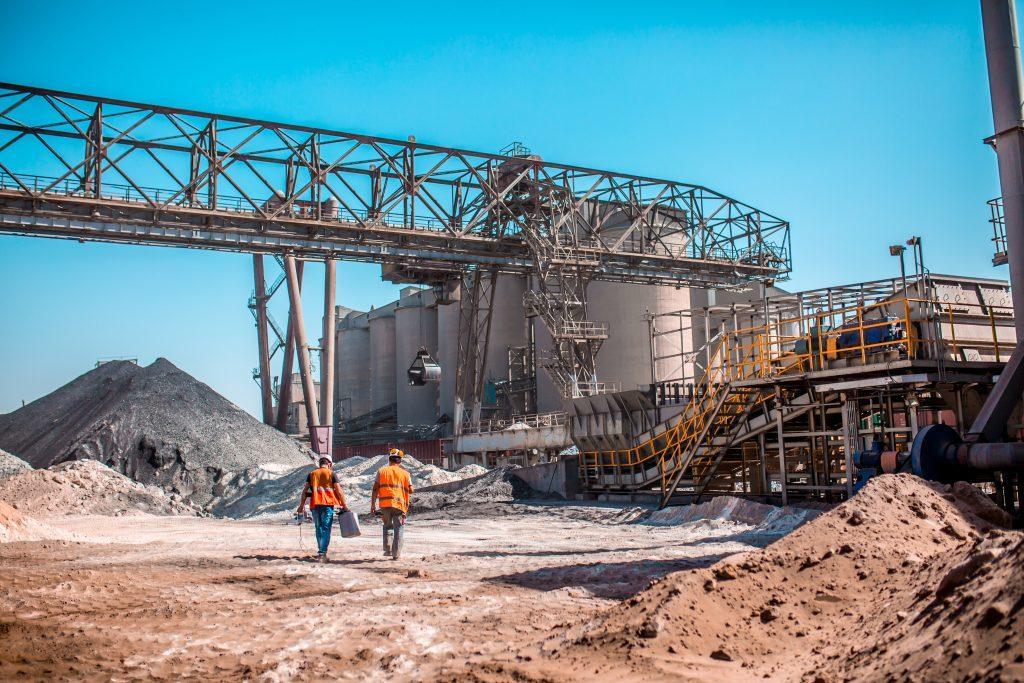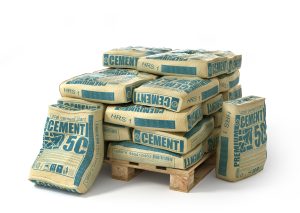Now we have the technology to make it easy for contractors, suppliers, and construction professionals to source their materials with just a few clicks.
No more busy work. You have more time to deepen your customer relationships and work on the things that really matter.
Why is cement ordering software important?
Cement is vital to the global economy. It’s used in countless construction projects, from humble homes to towering skyscrapers.
With its widespread use, it’s no wonder that cement is a very competitive business.
Online ordering software and delivery apps have made tedious phone calls, emails, faxes, and in-person visits obsolete.
By leveraging technology, you can easily eliminate the busy work that slows you down. And that means now you have more time to deepen your customer relationships and work on the things that really matter.
From unbeatable convenience to cost savings and deeper customer relationships.
Cement ordering software is the way forward.
First, what is cement?
The magic behind cement lies in its carefully crafted blend of materials, including calcium, silicon, aluminum, iron, and a few pinches of other ingredients, like gypsum.
Gypsum joins the party in the final grinding process to control setting time and compressive strength.
Cement is the secret sauce of construction. A miracle substance that plays the starring role in residential and commercial construction and national infrastructure projects.
You can think of it like this: Cement is the glue that keeps the concrete mix together.
And that means cement provides the strength and durability we rely on daily.
Who uses cement?

Cement is the go-to building material for a diverse cast of characters within the construction industry.
Here’s a look at some of the key players who rely on cement for their products and their projects:
As a primary ingredient in concrete, cement provides strength and durability to a wide range of structures, benefiting numerous stakeholders.
Contracting and construction
First and foremost, contractors and construction companies rely on cement to build residential, commercial, and industrial structures. Its versatility and cost-effectiveness enable them to create long-lasting buildings, translating into satisfied clients and repeat business.
Civil engineers
Along those same lines, civil engineers and infrastructure developers use cement for constructing roads, bridges, tunnels, dams, and other public infrastructure projects. These developments bolster economic activity by improving connectivity and promoting trade.
Masons and bricklayers
Masons and bricklayers depend on cement as mortar to bind bricks, stones, or blocks together. Cement helps these craftspeople to construct walls and various other structures. Cement’s adhesive properties facilitate their work and ensure the stability of their creations.
Homeowners
Homeowners benefit from cement as well. As a critical ingredient in many home improvement projects, cement is used to build retaining walls or lay concrete floors. Cement enables homeowners to enhance their properties’ aesthetics and value.
Landscape architects and garden designers incorporate cement into their designs too. Cement and cement-related products create functional and visually appealing landscape elements like garden paths, patios, and retaining walls.
What are the different ways of transporting cement?
Cement can be transported through various methods depending on several factors, including distance, infrastructure availability, and the quantity required.
These factors are important because transportation costs are one of the many pressures that affect the final price. Let’s get into it.
Bulk cement via roadway:
Bulk cement and many cement-related products are transported via roadway. Suppliers rely on specialized cement trucks known as bulk tankers for bulk cement.
Road transportation is popular for short and medium distances, where good road networks are available.
Rail transportation:
For longer distances, rail transportation is a cost-effective and environmentally friendly option. Cement is transported in bulk using specialized, covered rail wagons or hopper cars that protect the material from external elements.
Rail transport is suitable for shipping large quantities of cement between destination points with rail connections.
Bulk cement shipments by sea:
In cases where cement is exported or imported, sea transportation is the go-to choice. Cement is transported in bulk carriers or specialized cement-carrying ships with pneumatic unloading systems.
Seafaring transportation is ideal for moving bulk cement across long distances and in large quantities. Shipments by sea offer economies of scale and reduce overall transportation costs.
Pipeline transportation:
Although not very common, it is possible to transport cement by pipeline. This method involves transporting cement as a slurry (a mixture of cement and water) through pipes. A centrifuge then separates the slurry into water and cement again to return the product to its powdery form.
Pipeline transportation is rare and expensive. However, when the need arises, it can be advantageous in situations with limited access.
Bagged cement transportation:
Cement is sometimes transported in smaller quantities using bags, usually made of paper or polypropylene. Bagged cement is preferred when the end-users require smaller amounts, such as in brick and block masonry. Or when the cement user lacks the equipment to handle or store bulk cement in silos.
As you can see, cement transportation depends on factors like distance, infrastructure availability, and the quantity of cement required for a particular project.
How do you determine the right type and quantity of cement for a project?
Choosing the right cement type and quantity is critical for any construction project. Here’s how to nail down the perfect cement for your needs and calculate the required amount:
Factors to consider when choosing cement
- Project requirements: Pick a cement that checks all the boxes for your project’s demands. Need high early strength? Rapid Hardening Cement is the way to go.
- Environmental conditions: Keep Mother Nature in mind. If you’re dealing with sulfate, alkali, or high humidity, choose a cement that can handle it, like Portland Pozzolana Cement (PPC).
- Durability and strength: Your cement should meet your project’s strength and durability criteria. Thanks to its strength and durability, OPC is a solid choice for a wide range of construction projects.
- Setting time and workability: Make sure your cement provides the right setting time and workability for proper mixing, placement, and finishing. In a hurry? Rapid Hardening Cement might be your best bet.
Estimating the required cement quantity
- Determine the volume of concrete needed: Measure the area and calculate the volume in cubic meters or cubic yards.
- Calculate the cement content: Figure out the water-to-cement ratio (w/c) based on engineering specs or local building codes.
- Multiply the volume of concrete by the cement content: Find the total cement quantity by multiplying the concrete volume by the cement content (based on the w/c ratio).
- Adjust for waste and inaccuracies: Tack on an extra 5-10% of cement to cover waste, measurement inaccuracies, and mix variations.
Remember to consult with your engineer, architect, or ready-mix supplier for guidance on the right type and quantity of cement for your project. Their expertise and knowledge of local conditions and building codes can help ensure a job well done.
What should you look for when choosing a cement supplier?
Selecting the ideal cement supplier is crucial for a successful construction project. Keep your eyes peeled for these critical factors to ensure you’re partnering with the best in the biz:
Finding a reputable supplier
- Experience and track record: Go for a supplier with a solid reputation and years of experience, proving they can consistently deliver top-notch products and services.
- Product quality: Make sure the supplier’s cement meets industry standards and certification requirements, guaranteeing high-quality material for your project.
- Technical support: A top supplier should provide technical support and guidance on using their products, answering your questions and advising on the best cement type for your needs.
- Delivery Capabilities: Ensure the supplier can deliver the required cement quantity to your site on time and according to schedule, thanks to a dependable logistics network.
- Customer reviews and testimonials: Dig into customer feedback to gauge previous clients’ satisfaction, helping you assess the supplier’s service, product quality, and reliability.
Requesting quotes and comparing prices
- Request quotes: Contact several cement suppliers for quotes, providing accurate project information like cement type, quantity, and delivery location.
- Compare prices: Analyze the quotes and compare prices, but remember that the cheapest option may not always be the best if it sacrifices quality or service.
- Evaluate additional services: Consider if any extra services, like on-site support or custom cement blends, add value to your project and if the cost is worth it.
- Negotiate terms: Once you’ve narrowed your choices, negotiate the agreement terms, including delivery schedules, payment terms, and discounts for bulk orders or long-term contracts.
- Review contracts: Thoroughly review the contracts, ensuring all terms and conditions are clear before committing to a supplier to avoid misunderstandings and future disputes.
By thoroughly researching and comparing cement suppliers, you can find a reputable company offering high-quality products, competitive prices, and top-notch customer service.
What are the perks of online cement ordering?
Once a traditional sector, the cement industry is getting a digital makeover with the help of cutting-edge online platforms. Let’s see how these game-changing tools are transforming the cement ordering process and why it’s an exciting time for construction professionals:
- Online ordering saves you time and hassle, making it easy to place orders anytime, anywhere.
- Quickly compare prices and offerings from multiple suppliers, ensuring you get the best value.
- Stay informed with up-to-date product availability, specifications, and technical data.
- Track your order in real-time, helping you plan your project efficiently.
- Simplify expense management with automatically generated financial records.
Secure cement ordering platforms
- Reputable platforms prioritize data protection through top-notch encryption.
- Secure payment gateways process transactions safely, giving you peace of mind.
- User authentication keeps unauthorized users out, protecting your account information.
- Review a platform’s privacy policy to understand how your data will be handled and protected.
- Responsive customer support is essential to address any questions or concerns.
By adopting technology and secure online platforms, contractors and construction professionals can enjoy a more efficient and convenient cement ordering process.
What measures are taken to ensure the security of cement ordering software?
Ensuring the security of cement ordering software is vital for protecting sensitive information and maintaining a secure environment. Here’s a summary of the key measures taken:
Encryption and secure servers:
- SSL encryption establishes an encrypted link between a web server and browser, keeping data private and secure.
- Secure servers store sensitive data and are protected by advanced firewalls and intrusion detection systems.
- Data encryption at rest adds an extra layer of security for stored data.
Regular software updates:
- Providers release security patches to fix vulnerabilities and maintain a secure environment.
- Keeping software up-to-date is essential for optimal security and functionality.
- Regular security audits help identify and address potential security risks.
User authentication and access control:
- Multi-factor authentication adds an extra layer of security during login.
- Role-based access control restricts access to sensitive information and functionalities based on user roles.
Privacy policy and compliance:
- A transparent privacy policy outlines how user data is collected, used, and protected.
- Providers comply with relevant privacy regulations like GDPR and CCPA to ensure responsible data handling.
These security measures create a safe and reliable user environment, protecting sensitive information during online transactions and project management.
Why are cement producers increasingly selling cement online?
Cement producers are riding the digital wave, and it’s no wonder why! They’re increasingly selling cement online to meet customer expectations, streamline operations, and expand their market reach. Let’s break it down:
Meeting customer expectations:
Convenience is king! Cement producers know that offering online ordering saves time and effort for their customers.
- Faster decision-making: With all the necessary information, customers can quickly compare options and make informed choices.
- 24/7 accessibility: Online platforms don’t have business hours – they’re always open! Busy contractors and construction companies love the flexibility to order cement whenever they need it.
Streamlining operations and expanding market reach:
- Cost reduction: Cement producers can cut costs by selling online, as they save on rent, utilities, and staffing for physical storefronts. Plus, digital platforms automate tasks like order processing and inventory management.
- Expanded market reach: Online platforms break down geographical barriers, allowing cement producers to reach customers far and wide, potentially boosting sales and revenue.
- Real-time data and analytics: Cement producers can use valuable insights from online sales platforms to make informed decisions about product offerings, pricing strategies, and marketing efforts, ultimately driving business growth.
Online sales are quickly becoming crucial to many cement producers’ business strategies.
Cement producers that embrace online sales satisfy the modern customer’s desire for convenience and accessibility.
It doesn’t hurt that plug-and-play software solutions like GoBuild360 also simplify operations and expand market reach.




